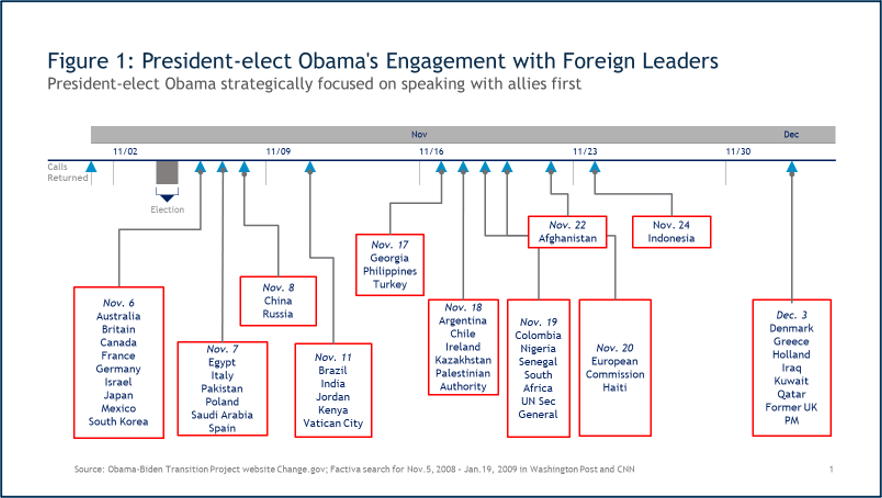Report & Publication
November 03, 2020
How Newly Elected Presidents Engage Foreign Leaders
Following the election, a president-elect traditionally engages in limited outreach to foreign leaders. Building relationships with key foreign leaders is critical and can help determine the success of the new president’s foreign policy. During the transition period, however, it is important for the president-elect and the staff to ensure the government is always speaking with one voice, particularly on matters of national security and foreign policy. As a result, the State Department traditionally has helped coordinate phone calls between a president-elect and foreign dignitaries. Best practice would be for the president-elect to avoid commitments that might undermine the current administration.
In the case of President-elect Barack Obama in 2008-2009, engagement with foreign leaders began with a series of phone calls placed shortly after Election Day to close American allies. This list included the United Kingdom, Israel, Japan, Canada and Mexico. This engagement was strategic and intended to emphasize the importance of these nations to the United States.
Two days later, Obama placed calls to leaders in Russia and China, countries with more complex relationships with United States. The chart below, compiled by the Center for Presidential Transition and the Boston Consulting Group, illustrates the calls placed by Obama and offers a rough roadmap for what we can expect from Vice President Biden should he win the election.

